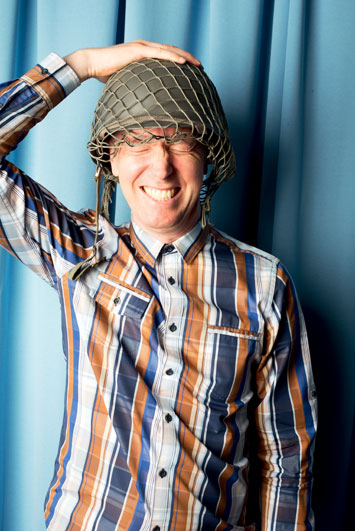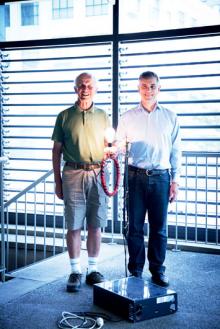It's a Small World
“The world’s tiny,” Phil Yates says without any detectable hint of irony. He should know. He’s played a key part in transforming a garage business into a global empire – albeit a global empire built in 1:100 scale.
Phil is a key player behind the massively successful Flames of War (FoW), a World War II miniatures game. You may not have heard of it but, believe us, for a game measured in millimetres, it’s huge.
“In the historical market, we’re it,” Phil tells me over a herbal tea in the company’s offices in Auckland. “Before FoW your only choices were fantasy or sci-fi games. Historical was a wide open market.”
People were playing war games before FoW launched in 2002; they just weren’t playing the same one. In the niche world of war gaming this was a problem: in order to play someone outside of your gaming group, you had to agree on rules. FoW entered the scene with a polished and fun game, a full range of accurate and detailed models and, crucially, a rule set that allowed for tournament play. Now, people all over the world could come together to pit their tactical nous against each other. It immediately took off.
New Zealand isn’t exactly on the frontlines of global gaming design so how did this small company – which back then consisted of a few people in a garage – take over the world?
“This business exists because of the internet,” Phil tells me. “Prior to that, it would have been impossible. It’s been global right from the beginning and that’s been its strength.”
Going against the norm of charging for rule books, Phil posted the FoW rules online, free for anyone to download. The company also published physical rule books, but it was the online versions that sowed the seeds of a global community which Phil now estimates to be over 100,000 people.
The business engine that powers the empire is also brilliant; to play FoW you need an army of miniatures, which are made by parent company Battlefront. New armies and rule books are regularly released, continually expanding the scope of the game by adding new forces, equipment and scenarios, which in turn stimulates demand for new miniatures. It’s a system that Phil says keeps gamers “out of money, but happy”.
Despite its overwhelming domination, there’s been a few tactical retreats over the years, most notably in manufacturing, which was shifted offshore a few years ago.
“Shipping product is a big challenge for anyone. If you’re talking a global market there’s no place that’s cheap to ship from. Which is why we no longer produce in New Zealand,” Phil says. “But ideas are easy to move and that’s the good bit.
“New Zealand is very creative and very able to make things happen.”
Reported by Karl Puschmann for our AA Directions Autumn 2024 issue




